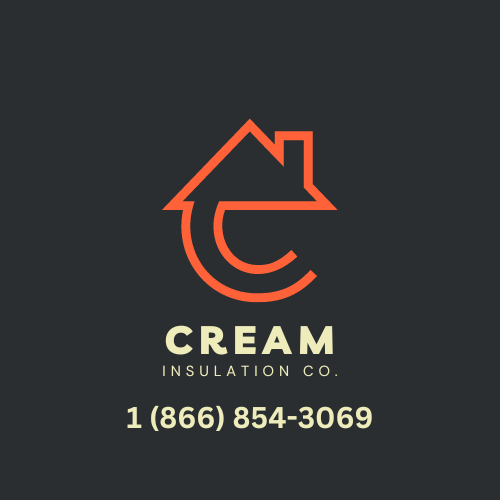How Much Does Insulation Cost in Michigan?
The benefits of insulation sound great, but what does it cost? The answer depends on the size of your home and what you’re insulating. Cream Insulation Company offers insulation at a lower cost than our competitors. You can also finance your insulation project. The charts below provide a ballpark estimate of insulation costs.
Whole Home
| SQFT | PRICE RANGE |
|---|---|
| 500 | $2,887 - $3,325 |
| 1000 | $5,400 - $6,000 |
| 1500 | $8,101 - $9,000 |
| 2000 | $10,250 - $11,200 |
| 2500 | $12,813 - $14,225 |
| 3000 | $15,375 - $18,000 |
| 3500 | $17,913 - $21,000 |
| 4000 | $21,600 - $24,000 |
Walls Only
| SQFT | PRICE RANGE |
|---|---|
| 500 | $1,875 - $2,200 |
| 1000 | $3,375 - $3,750 |
| 1500 | $5,063 - $5,625 |
| 2000 | $6,200 - $6,700 |
| 2500 | $7,750 - $8,600 |
| 3000 | $9,300 - $11,250 |
| 3500 | $10,825 - $13,125 |
| 4000 | $13,500 - $15,000 |
Attic
| SQFT | Price Range |
|---|---|
| 500 | $1,012 - $1,125 |
| 1000 | $2,025 - $2,250 |
| 1500 | $3,038 - $3,375 |
| 2000 | $4,050 - $4,500 |
| 2500 | $5,063 - $5,625 |
| 3000 | $6,075- $6,750 |
| 3500 | $7,088 - $7,875 |
| 4000 | $8,100 - $9,000 |
Frequently Asked Questions About Insulation Pricing
-
How much does home insulation cost?
The cost of home insulation can vary depending on a number of factors, such as the type of insulation material used, the size and shape of the space being insulated, and the installation method. On average, the cost of insulation can range from a few hundred to several thousand dollars.
-
What factors affect the cost of home insulation?
Several factors can affect the cost of home insulation, such as the type and quality of insulation material, the size and shape of the space being insulated, the condition of the existing insulation (if any), and the complexity of the installation process. The cost can also vary depending on where you live and the availability of insulation contractors in your area.
-
Is it worth the cost to insulate my home?
In most cases, yes. Home insulation can provide numerous benefits, such as increased energy efficiency, improved indoor comfort, and reduced noise pollution. While the upfront cost of insulation can be significant, the long-term savings on energy bills and potential increase in home value make it a worthwhile investment for many homeowners.
-
How much can I save on my energy bills by insulating my home?
The amount you can save on your energy bills by insulating your home depends on several factors, such as the size of your home, the insulation materials used, and the climate in your area. On average, homeowners can save between 10-50% on their energy bills by properly insulating their homes.
-
Are there any tax credits or incentives available for home insulation?
Yes, there are often tax credits and other incentives available for homeowners who install insulation in their homes. These incentives can vary depending on where you live and the type of insulation being installed, so it's important to research available incentives and speak with a professional insulation contractor to learn more.
-
How do different types of insulation materials compare in terms of cost?
Different types of insulation materials can vary in cost, with some materials being more expensive than others. For example, spray foam insulation tends to be more expensive than fiberglass insulation. However, the cost of insulation materials is just one factor to consider when choosing an insulation type, as different materials also have different benefits and drawbacks.
-
Is it more cost-effective to insulate my entire home or just certain areas?
In most cases, insulating your entire home will provide the greatest energy savings and long-term cost benefits. However, if you have a limited budget, it may be more cost-effective to focus on insulating the areas of your home that are most prone to energy loss, such as your attic, basement, or crawl space.
-
How do installation costs factor into the total cost of home insulation?
Installation costs can vary depending on the size and complexity of the insulation job. In general, the cost of installation may be higher for more complex insulation jobs or for jobs that require specialized equipment or expertise. However, proper installation is critical to the effectiveness of your insulation, so it's important to work with a professional insulation contractor to ensure the job is done correctly.
-
Can I install insulation myself to save money?
While it is possible to install insulation yourself, it can be a challenging and time-consuming process. Improper installation can also lead to reduced effectiveness and energy savings. Working with a professional insulation contractor is often the best way to ensure proper installation and maximum energy savings.
-
How can I get an accurate estimate for the cost of insulating my home?
The best way to get an accurate estimate for the cost of insulating your home is to contact a professional insulation contractor. They can assess your home, recommend the best insulation options, and provide you with a detailed cost estimate that takes into account your specific needs and budget.

Services
Main Office
Saginaw, MI

